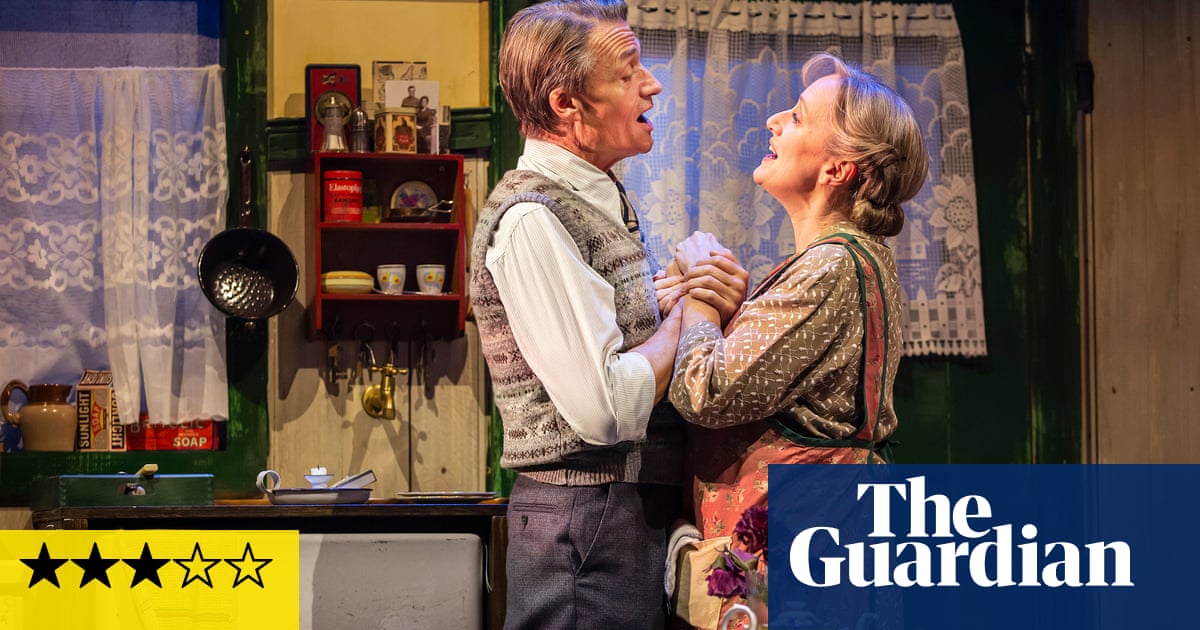
The set for this new production of a poignant 2016 musical is all doors. Nik Corrall’s design suggests that its heroine, Ada Harris (Jenna Russell), might be opening up new opportunities or shutting foolish dreams away.
We’re in glum postwar Battersea, all rationing and making do. Ada’s husband died in the first war, and she sits with grief, working her fingers to the bone as a cleaner while chatting to hubby’s ghost (Hal Fowler). Long dormant feelings bloom when she encounters a client’s new Dior gown; entranced, she resolves to buy her own. “It’s like somehow I just found a piece of me.” With best friend Vi (incisive Annie Wensak), she scrimps her way to afford a New Look marvel.
Based on Paul Gallico’s 1958 novel Mrs ’Arris Goes to Paris – which was also filmed last year with Lesley Manville – the show could use secateurs. It takes forever to get Ada to “bleedin’ Paris”, and Bronagh Lagan’s production only takes flight when she reaches Avenue Montaigne. The Dior gatekeepers take one look at her frowsty coat and point to the tradesman’s entrance; when she insists she’s a customer, it’s all “Sacré bleu!”, “C’est absurde” and “You are dirtying my floor just by standing there”.
Inevitably, Ada melts the Gallic frost. Even the scathingly chic manager Madame Colbert (Kelly Price) murmurs, “Every woman is a princess, n’est-ce pas?” and then helps Ada towards the thrilling swathes of crimson that enrapture her.
Even when the musical risks slackening the thread of Ada’s quest, Russell keeps it taut, giving a shining performance of quiet resolve. In faded rose pinny with practical pockets (Sara Perks’ costumes have a snug hold on character), she clasps her handbag tight even in the Dior fitting room. Russell’s voice can be hushed or soar with withheld hope: she brims with loss, loneliness and the yearn for something more.
She is surrounded by a versatile ensemble, each London character doubled with a Parisian equivalent. This sweetly unassuming musical has no dancing and few belting solos; those from a couple of young sweethearts seem unappealingly self-absorbed. Richard Taylor and Rachel Wagstaff prefer chiming duets, a stitch of melody that points to the story’s true subject – not blazing self-fulfilment, but community and connection.












